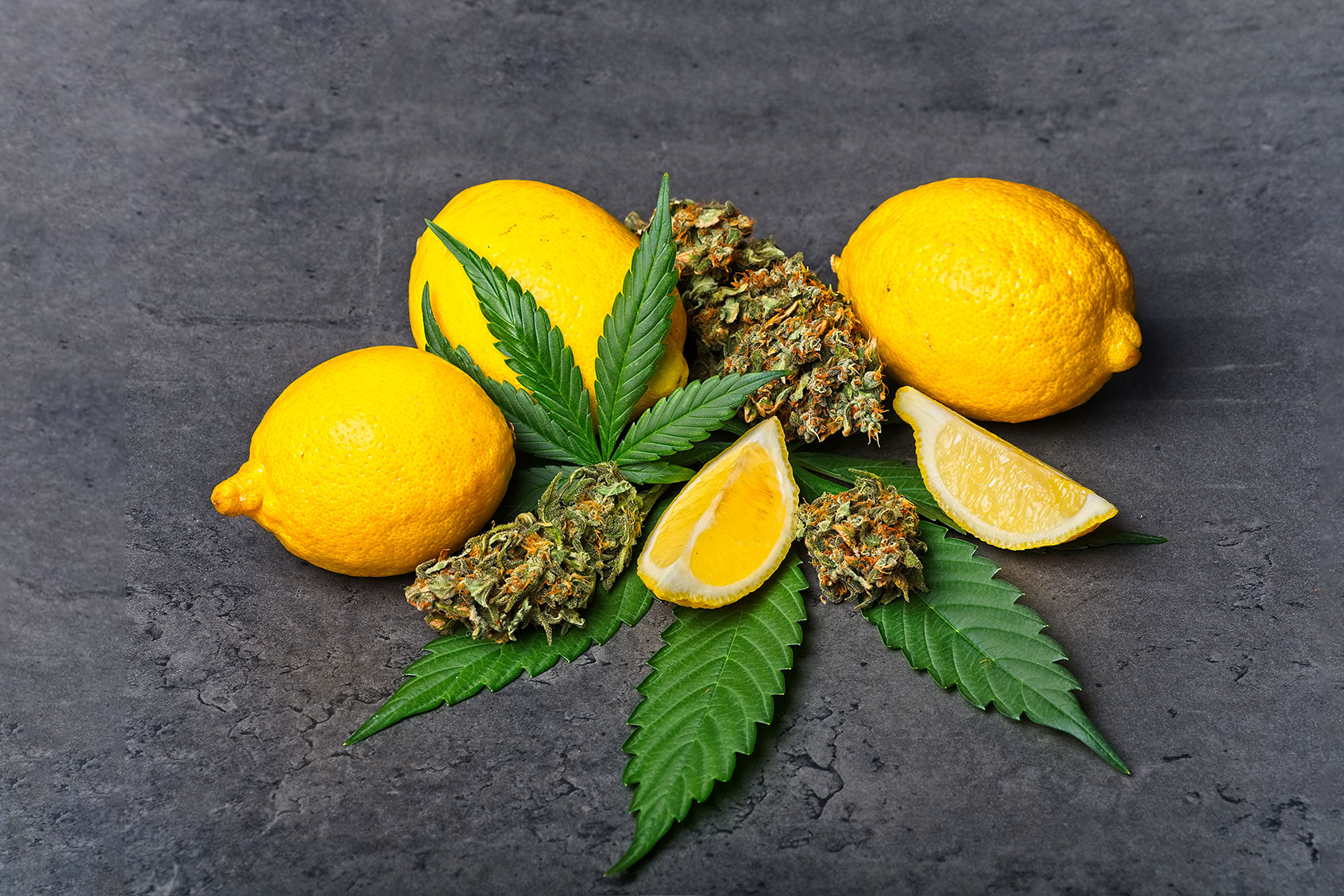Ah, the duality of pot. It relaxes you, but sometimes makes you more anxious instead? What gives? If your trips to the cannabis dispensary have you searching for strains less likely to trigger anxious paranoia, a team of Johns Hopkins University scientist may have found something to help. According to their recent research, the key to picking a pleasantly low-key bud may be in choosing the one that smells most like lemons.
Most people know that cannabis plants can generate tons of different scents, from skunk to cheese to gasoline and permanent marker, though berry, fruity and citrusy stinks may be more pleasant. While marijuana extracts are best known for their intoxicating THC (delta-9-tetrahydrocannabinol) and more medicinal CBD (cannabidiol), these two drugs aren't responsible for the plant's aromas. The smalls instead come from natural oils called terpenes and flavonoids.
And while they won't get you high on their own, they do more than act as perfumes, modulating a stoney experience — just like CBD doesn't get people stoned when ingested by itself, but is THC's best supporting actor when the two appear in the same joint.
As published last month in the journal Drug and Alcohol Dependence, the research team found that when administering cannabis to people in standard doses, the typical rate of anxiety and paranoia among test subjects dropped steadily as the scientists increased the amount of a naturally occurring lemon-scented aromatic — one that hasn't been proven to have any effect on how individuals experience a cannabis high until now.
"Historically, THC was believed to account wholly for the acute behavioral and psychoactive effects of cannabis and other cannabis constituents were considered largely inconsequential," the researchers wrote. "However, an alternative view, commonly referred to as the cannabis entourage effect theory, asserts that many constituents of the plant (e.g., minor cannabinoids and/or terpenes) meaningfully influence the acute effects of cannabis."
A terpene in cannabis called d-limonene doesn't get you high at all, but the team's discovery indicates it could pleasantly color whatever high you experience. D-limonene is one of the many aromatic terpenes which give weed its distinctively citrusy bouquet, and is the primary terpene in (you guessed it) actual lemons.
"This experiment showed that simultaneously administering vaporized d-limonene and THC reduced subjective indices of THC-induced anxiety in a dose-orderly manner."
Traditional home cultivators have long prized citrus-heavy cannabis strains for offering users a more easeful psychological experience, resulting in many well-known methods of citric infusions through water and soil titration. Among the most famously pleasant strains of cannabis are those with names saluting the characteristically bright scent of d-limonene, such as Super Lemon Haze and Lemon OG Kush — all of which rose to prominence for producing a highly creative and focused cerebral effect, with fewer notes of anxiety or panic in the high.
As legalization has grown, however, the latter-day cannabis industry has carried this kitchen wisdom forward from traditional herbalists, with some company's advertisements touting d-limonene inclusions as a less nerve-rattling option. As noted by the research team, scientists began hypothesizing about d-limonene's paranoia-mitigating role.
Want more health and science stories in your inbox? Subscribe to Salon's weekly newsletter Lab Notes.
When John Hopkins researchers recently took up that hypothesis, they gave 20 subjects 30mg of THC and typical results occurred across eight test sessions. But when they gave subjects 30mg of THC plus 15mg of d-limonene, the results were direct and promising.
"This experiment showed that simultaneously administering vaporized d-limonene and THC reduced subjective indices of THC-induced anxiety in a dose-orderly manner," the team wrote, adding that d-limonene interfered with no other usual cannabis-ingestion results.
We need your help to stay independent
This not only led the team to discover a path toward fine-tuning cannabis users' experience but it may also unlock new evidence toward a more comprehensive understanding of the entourage effect theory.
"Though largely untested in empirical clinical research, the cannabis entourage effect theory has greatly influenced cannabis industry practices, including how cannabis products are cultivated, marketed, and consumed," the researchers wrote. "For example, cannabis is often selectively bred to contain specific minor cannabinoid and/or terpene profiles and there is a growing market of products purported to principally contain minor cannabinoids or terpenes," researchers said, adding that future testing would still be needed.
So the next time you're shopping for a more relaxing experience without having to buy a sleep-inducing smoke, briefly nosing the buds as you might a glass of wine could help you sniff out a lemon-scented strain that won't leave you sour.
Read more
about getting blazed


